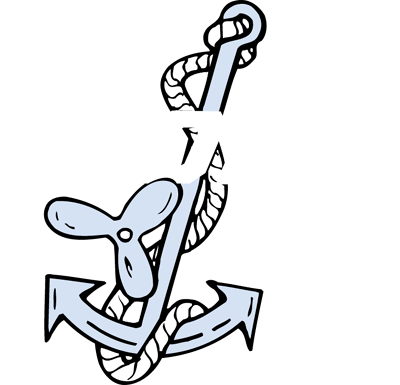When human and technological distractions came together on the bridge of a towboat traveling downriver, the result was career-changing for the vessel’s first mate on the wheel. It is yet another costly reminder of the need for professional mariners to give their often dangerous jobs their undivided attention and to stay focused on the task at hand.
During departure preparations, the first mate had been distracted by an animated conversation on his radio telephone with a deckhand. Perhaps as a result, he was unaware that his towboat was slowly drifting to port as it made its way downriver. Eventually, the mate acted to adjust his course but, before he could alter direction, he heard a loud scraping sound on his portside and felt his vessel slow and veer further out of the channel. Unfortunately, the unmistakable odor of spilled petroleum and his now balky engine convinced him to return to the dock he had departed from less than 20 minutes earlier.
Preliminary inspections revealed that not only had the vessel suffered moderate structural damage below the waterline of its portside from the grounding, but also was likely to continue to leak fuel, and possibly oil from its propulsion system.
The mate notified his company of the incident who then reported it to the Coast Guard. He then called his license insurer’s hotline and within minutes was speaking with a maritime lawyer assigned to handle his defense. The Admiral attorney provided the mariner with guidance for his impending Coast Guard interview which took place at the dock.
Sadly, the mate’s furious employer terminated his employment within eight hours of the casualty, rather than wait for the results of the Coast Guard’s investigation. Two weeks later, the licensed deck officer was contacted by the local Coast Guard Marine Safety Office (MSO) and directed to come in for an in-depth interview.
During the interview, it became clear that the Coast Guard investigators suspected that the mate grounded because he was distracted while using his cell phone. Aware of his earlier heated radio telephone discussion with his deckhand, investigators suspected that he continued the argument on his personal cell phone while underway. The USCG’s investigating officer requested to see the mate’s cell phone records for the period several hours before the early morning grounding. Thankfully for the mate (and his license), he had neither made nor received any personal cell phone calls in the critical pre-grounding timeframe.
Although cleared of that suspicion by investigators, the now unemployed mariner still had to confront impending negligence charges being brought by the Coast Guard for the actual grounding and suspected minor spill.
Prior to bringing negligence charges and facing potential Suspension & Revocation (S&R) proceedings, the Coast Guard surprisingly proposed a settlement offer of the case. The offer stipulated that the mate would accept a three-month suspension of his USCG license, remitted on a three-month probationary period. The result being that the mate, assuming he could find new employment, would be allowed to work under his license as long as he had no further incidents during the 90-day probationary period. He prudently concluded that the thought of being charged with negligence and facing S&R proceedings, particularly with no source of income, was far more daunting than successfully completing his probationary period.
While cell phone records helped lead to a relatively positive outcome for the mariner in this case, rarely a day goes by when news reports of some transportation accident is not attributed to operator distraction of some kind. The message to professional mariners operating commercial vessels on America’s waterways remains the same: That phone call, text, or email can wait until off duty.
Since 1935, MOPS has protected the licenses and livelihoods of more than 80,000 deck and engineering officers, state and federal pilots and certified tankermen.
We cover USCG licensed officers operating aboard vessels of any size in every sector of the maritime industry. If you want a quote, give us a ring at 800-782-8902, ext. 3608 or 3302. Or fill out our online form and we'll email you a quote.

